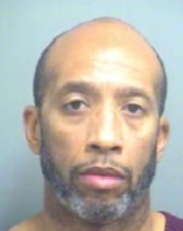
The court-appointed receiver unraveling the affairs of a Florida firm accused by the SEC of operating a $27 million commodities fraud and selling unregistered securities says the company had “insiders and related parties” who took out twice what they put in.
Clawback actions are anticipated against unspecified “targets” because the money they received constituted “fraudulent transfers,” receiver David S. Mandel advised a federal judge.
Meanwhile, Mandel says Commodities Online shared office space with a law firm. On the second floor of the shared space was a “boiler room” with 12 cubicles, phone lines and computers.
At the same time, Mandel says an early analysis of records shows that the company had at least five bank accounts, including accounts at Bank of America, Fifth Third Bank, JP Morgan Chase, PNC Bank and Wachovia.
The insiders at Commodities Online put more than $5.36 million into the firm between Jan. 1, 2010, and April 1, 2011, and took out more than $10.84 million, according to the early analysis.
“[T]he Receiver was able to identify potential targets who received fraudulent transfers under §726.101 of the Florida Statutes,” Mandel said. “In the upcoming weeks, the Receiver intends to send letters to each of these targets demanding the disgorgement of profits and the recovery of fraudulent transfers.”
Although the firm operated only for about 16 months and allegedly told investors they would “earn 5% or more per month without price speculation,” Mandel’s preliminary analysis suggests more than $885,000 was allocated for “salaries” and more than $523,000 was allocated for “Legal and Professional” fees.
The firm was not registered with the SEC, according to court filings. Mandel said a forensic analysis continues and that records, including computer records, are being scoured for clues.
“Existing email from the Defendants has been downloaded and is being searched for potential transfers of funds or other related activity that may yield additional assets to be acquired for the receivership estate,” Mandel said.
And, he noted, there are “preliminary indications” that Commodities Online “may own a substantial quantity of iron ore located in Mexico,” but that ownership has not been verified.
“The Receiver has retained Mexican counsel to attempt to determine if the Defendants do, in fact, own the iron ore, and if so, to take whatever steps are required to safeguard the ore for later sale or liquidation, for the benefit of the receivership estate,” Mandel said.
At least two persons associated with Commodities Online have criminal records for offenses ranging from “narcotics and firearms felonies” to bank fraud and “transmitting a threat to injure,” according to the SEC.
Although the SEC did not identify the individuals, records show that Commodities Online figures James Clark Howard III and Louis Gallo were charged with the offenses. Implicated in a drugs and weapons case, Howard was sentenced to 57 months in federal prison in the 1990s.
Gallo was implicated bank-fraud and threats cases, and was on supervised release while the firm operated.
Howard is at the center of at least three financial storms in Florida, including the SEC case against Commodities Online. Separately, private litigants — including SSH2 Acquisitions, a company that listed former AdSurfDaily (ASD) member and Surf’s Up Mod Terralynn Hoy as a director — alleged last year that Howard was part of a separate Ponzi scheme that gathered at least $39 million.
Florida authorities charged him criminally in 2010 in a fraud scheme that allegedly targeted the Haitian American community.
ASD was implicated by the U.S. Secret Service in an alleged $110 million Ponzi scheme. Hoy has not been accused of wrongdoing.
See earlier story.